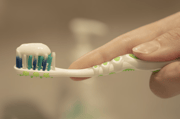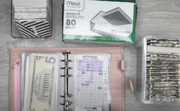A NASA intern stole moon rocks worth $21 million—the shocking details revealed
By
Veronica E.
- Replies 0
When most people think of NASA, they picture innovation, exploration, and some of the most secure scientific environments in the world.
But in 2002, one college intern made headlines for all the wrong reasons.
What began as a promising career path turned into one of the most unusual theft cases in the agency’s history—one involving moon rocks, a hotel room, and an undercover sting.
This real-life event captured the attention of both the scientific community and the public, not just because of what was taken, but how—and why.
It was a story that blended science, betrayal, and an unexpected breach of trust inside one of the world’s most respected institutions.

Thad Roberts, a NASA intern at the Johnson Space Center in Houston, Texas, worked alongside two accomplices, Tiffany Fowler and Shae Saur, to steal lunar samples collected during the Apollo missions.
These moon rocks, gathered between 1969 and the early 1970s, were among NASA’s most prized and scientifically valuable artifacts.
The group used their intern credentials to access the lunar sample vault after hours.
Inside, they located and wheeled out a secure safe containing the rocks—items collectively valued at $21 million.
The theft also included decades of handwritten research notes stored with the samples.
After the theft, Roberts and Fowler took the moon rocks to a hotel room.
In later interviews, Roberts admitted that the two placed the rocks beneath the bed sheets and engaged in intimate activity—an act he described as a symbolic gesture.
Unfortunately, that moment led to contamination of the samples, making them unusable for future research.
This decision not only caused widespread disbelief, but also deep frustration within the scientific community.
The moon rocks were damaged, and irreplaceable data was lost.
Following the theft, the group attempted to sell the rocks online.
They advertised the samples and communicated with what they believed was a willing buyer.
That “buyer,” however, was an undercover FBI agent.
The sting operation resulted in the group’s arrest.
Authorities recovered the moon rocks from the hotel room.
Thad Roberts was sentenced more than 8 years in federal prison, while his co-conspirators received lighter penalties, including house arrest and community service.
Disclaimer: This video includes explicit language and may not be appropriate for all audiences. Viewer discretion is advised.
To many, lunar samples may just look like ordinary rocks—but their scientific value is extraordinary.
These materials offer insights into the formation of the moon, the early solar system, and even Earth’s geological history.
When these rare items are stolen or damaged, the loss affects more than just a single agency.
It’s a setback for researchers across the globe and for future generations who rely on these materials to expand human understanding.
The case led to significant changes in how sensitive materials are handled.
Security protocols were tightened, and access to research vaults is now more limited and closely monitored.
The incident served as a clear reminder that even in high-trust environments, vulnerabilities exist.
This story stands as a cautionary tale about the responsibility that comes with handling scientific materials.
Whether it’s a piece of the moon or a family heirloom, preserving and protecting valuable artifacts is a duty that should never be taken lightly.
Read next: She who reaches the stars: Find out which celebrities will join the first all-female spaceflight since 1963!

Have you ever heard of a more unusual theft? What should happen when someone damages items of historical or scientific importance? Let us know in the comments—we’d love to hear your thoughts.
But in 2002, one college intern made headlines for all the wrong reasons.
What began as a promising career path turned into one of the most unusual theft cases in the agency’s history—one involving moon rocks, a hotel room, and an undercover sting.
This real-life event captured the attention of both the scientific community and the public, not just because of what was taken, but how—and why.
It was a story that blended science, betrayal, and an unexpected breach of trust inside one of the world’s most respected institutions.

Thad Roberts, a former NASA intern, was at the center of a high-profile moon rock theft. Image Source: YouTube / CBS.
The plan that shocked the scientific world
Thad Roberts, a NASA intern at the Johnson Space Center in Houston, Texas, worked alongside two accomplices, Tiffany Fowler and Shae Saur, to steal lunar samples collected during the Apollo missions.
These moon rocks, gathered between 1969 and the early 1970s, were among NASA’s most prized and scientifically valuable artifacts.
The group used their intern credentials to access the lunar sample vault after hours.
Inside, they located and wheeled out a secure safe containing the rocks—items collectively valued at $21 million.
The theft also included decades of handwritten research notes stored with the samples.
Also read: Prepare to laugh: Discover the hilarious street names hidden in your state that you’ve never heard before!
A disturbing twist
After the theft, Roberts and Fowler took the moon rocks to a hotel room.
In later interviews, Roberts admitted that the two placed the rocks beneath the bed sheets and engaged in intimate activity—an act he described as a symbolic gesture.
Unfortunately, that moment led to contamination of the samples, making them unusable for future research.
This decision not only caused widespread disbelief, but also deep frustration within the scientific community.
The moon rocks were damaged, and irreplaceable data was lost.
Also read: From zero gravity to hard reality: NASA astronauts face new challenges on Earth
Caught in an undercover sting
Following the theft, the group attempted to sell the rocks online.
They advertised the samples and communicated with what they believed was a willing buyer.
That “buyer,” however, was an undercover FBI agent.
The sting operation resulted in the group’s arrest.
Authorities recovered the moon rocks from the hotel room.
Thad Roberts was sentenced more than 8 years in federal prison, while his co-conspirators received lighter penalties, including house arrest and community service.
Disclaimer: This video includes explicit language and may not be appropriate for all audiences. Viewer discretion is advised.
Also read: A Soviet spacecraft is falling to Earth — will it land closer than you think?
Why moon rocks matter
To many, lunar samples may just look like ordinary rocks—but their scientific value is extraordinary.
These materials offer insights into the formation of the moon, the early solar system, and even Earth’s geological history.
When these rare items are stolen or damaged, the loss affects more than just a single agency.
It’s a setback for researchers across the globe and for future generations who rely on these materials to expand human understanding.
How NASA responded
The case led to significant changes in how sensitive materials are handled.
Security protocols were tightened, and access to research vaults is now more limited and closely monitored.
The incident served as a clear reminder that even in high-trust environments, vulnerabilities exist.
This story stands as a cautionary tale about the responsibility that comes with handling scientific materials.
Whether it’s a piece of the moon or a family heirloom, preserving and protecting valuable artifacts is a duty that should never be taken lightly.
Read next: She who reaches the stars: Find out which celebrities will join the first all-female spaceflight since 1963!
Key Takeaways
- A NASA intern, Thad Roberts, and two accomplices stole a safe containing $21 million worth of moon rocks from the Johnson Space Center in Houston in 2002.
- Roberts and his accomplice, Tiffany Fowler, admitted to having sex on the stolen moon rocks in a hotel room, contaminating the priceless scientific specimens.
- The theft also destroyed three decades’ worth of handwritten research notes from a NASA scientist that were kept with the rocks.
- The group was caught after trying to sell the moon rocks to undercover FBI agents, leading to Roberts receiving a more than 8 years in prison sentence and his accomplices being given house arrest and community service.
Have you ever heard of a more unusual theft? What should happen when someone damages items of historical or scientific importance? Let us know in the comments—we’d love to hear your thoughts.






